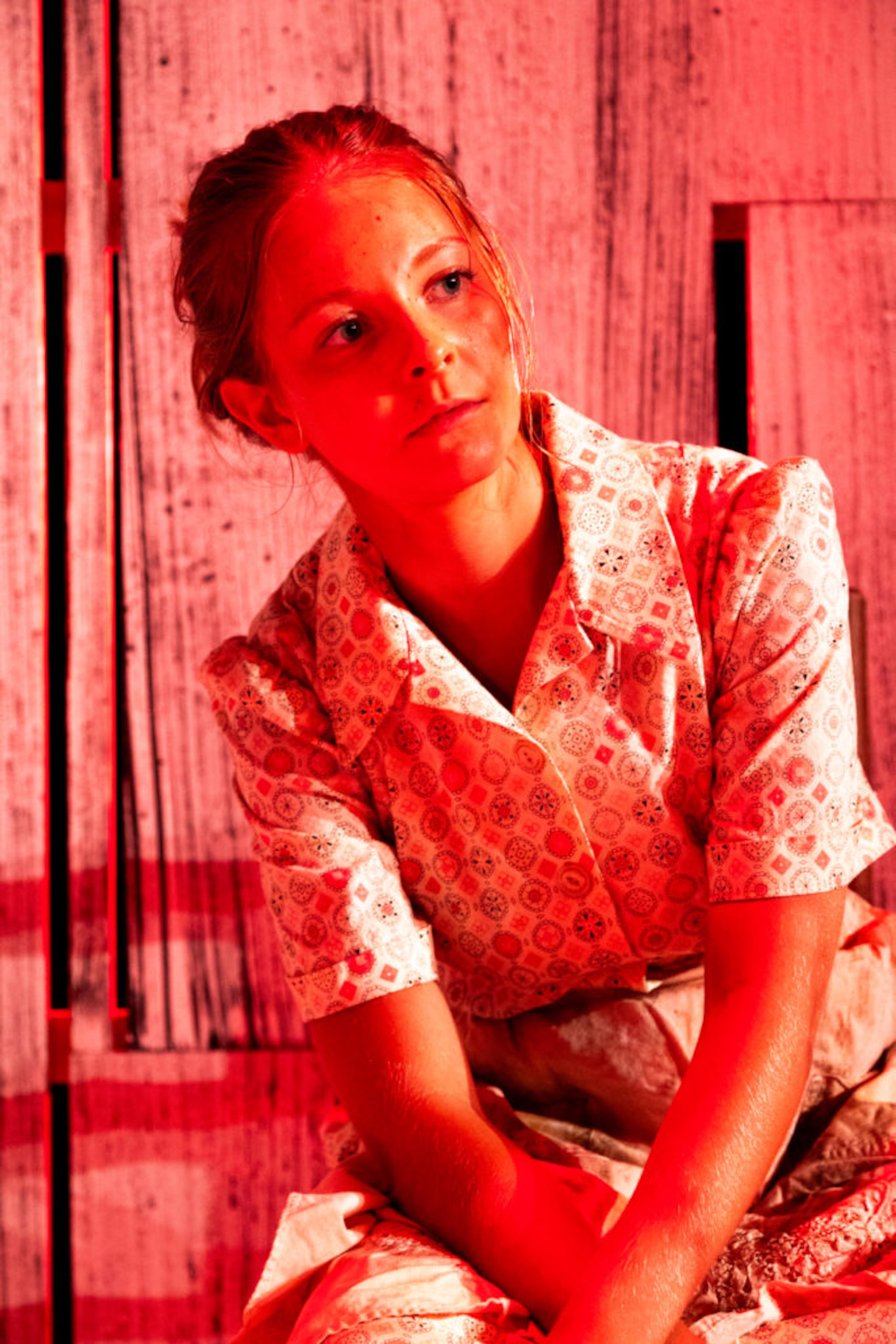In Theater Emory’s ‘Mud,’ a woman’s hope overcomes oppression

This story was originally published by ArtsATL.
Experimental theater can challenge, perplex, amuse, educate and even break the hearts of those who are game to attend. The best theater is an engine for compassion and connection. It can show you a new way of considering your life or the situations of others. “Mud,” a groundbreaking play from renowned Cuban American playwright Maria Irene Fornes at Theater Emory through Oct. 12, will give students and Atlanta audiences an opportunity to see raw, experimental work that shows the power of theater.
Though it is not an easy play, “Mud” explores possibility and hope, according to director Mary Lynn Owen.
“I was so intrigued with the style of the play and the language,” Owen said in a recent interview. “Fornes’ language is so economical and almost brutal, and yet it’s poetic. And I just knew I would learn so much. It’s a harsh play. It’s a violent play. It’s filled with these beautiful grace notes, but they come at a price. It’s very graphic in a lot of ways, but it’s also so tender.”

Written in 1983, “Mud” focuses on the struggles of a young woman named Mae, played by Emory student Kailey Albus. Mae is illiterate and trapped in poverty with a sickly man named Lloyd, played by student Ethan Cohen. Learning to read as a way of escaping her situation, Mae invites her neighbor, Henry, played by professional actor Michael Joshua Williams, into their home.
Set entirely in a claustrophobic house atop a mass of red clay, the play runs just over an hour, but it’s 17 scenes does not follow Mae’s story in a linear way. Rather, it explores her desires and hunger to escape.
“This is very much Mae’s journey coming to realize herself, her power and how the circumstances that she’s been placed in have taken away her sense of agency,” Albus said. “So it’s really her realizing not only that she has autonomy but that she contains more value than she’s been told throughout her life.”
Albus said she connects with many aspects of her character.
“Mae’s very simple in her demeanor, and I think I am also very simple in my demeanor,” Albus said. “She’s somebody that feels things as she says them, and words are her lifeline. And as somebody [who has] loved writing and English throughout my entire life, I understand her affinity for language, having the right words and being articulate. And at the same time, I think I can relate to her almost lack of self-confidence, of fearing that I’m not articulate enough and feeling that I’m not smart enough or good enough in the eyes of somebody else.”

Fornes explored the oppression of women in her works. In “Mud,” Mae faces oppression within her own household.
“It’s innately ingrained in a lot of women to understand the dynamics of power that are at play,” Albus said. “Even though these men are not as in tune with themselves and not as self-reflective as Mae is, they are, at different points, in positions of power that completely dismantle her self-worth.”
Owen said preparing the play with Albus has been a joy.
“Kailey’s a hard worker and very intuitive, and she, like Mae, has such grit and heart,” Owen said. “So it’s been wonderful to be able to discover the play with her and to collaborate together — because it’s a process for me, too, of exploring and uncovering Fornes.”
Owen said the challenge of staging “Mud” has been thrilling for that reason, for Fornes sought to explode storytelling form and challenge audiences’ expectations of how plays are told.
“The wonderful thing about Fornes is she’s almost the most influential, famous playwright that no one’s ever heard of,” Owen said. “A lot of theater people don’t know about her impact. She’s sort of a goddess among playwrights.”
THEATER REVIEW
“Mud”
Theater Emory through Oct. 12. 7:30 p.m. Saturday, Wednesday, Thursday, Friday; 2 p.m. Sunday. $20; non-Emory student, $5. Schwartz Center for the Performing Arts, 1700 North Decatur Road N.E., Atlanta. 404-727-5050, tickets.arts.emory.edu
::
Benjamin Carr is an ArtsATL editor-at-large who has contributed to the publication since 2019 and is a member of the American Theatre Critics Association, the Dramatists Guild, the Atlanta Press Club and the Horror Writers Association. His writing has been featured in podcasts for iHeartMedia, onstage as part of the Samuel French Off-Off Broadway Short Play Festival and online in The Guardian. His debut novel, “Impacted,” was published by the Story Plant.

MEET OUR PARTNER
ArtsATL (artsatl.org) is a nonprofit organization that plays a critical role in educating and informing audiences about metro Atlanta’s arts and culture. ArtsATL, founded in 2009, helps build a sustainable arts community contributing to the economic and cultural health of the city.
If you have any questions about this partnership or others, please contact Senior Manager of Partnerships Nicole Williams at nicole.williams@ajc.com.


